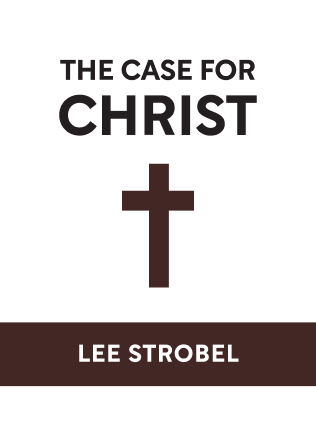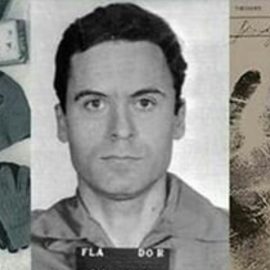

This article is an excerpt from the Shortform summary of "The Case for Christ" by Lee Strobel. Shortform has the world's best summaries of books you should be reading.
Like this article? Sign up for a free trial here .
Was Jesus divine? How do we know? Is there any proof that Jesus was in fact a divine being?
In The Case for Christ, Lee Strobel decides to find out the answer to the question “was Jesus divine?” He’s not the first one to ask this question. In his research, Strobel uncovered evidence that helped answer the question “how was Jesus divine?”
So, how was Jesus divine? Keep reading.
How Was Jesus Divine?
It’s an important question in Christianity: was Jesus divine? Whereas the God of the Old Testament is omni-everything, Jesus appears limited in all sorts of ways: he can’t exist in two places at once, he admits that he doesn’t know when he’ll return to Earth, and he’s unable to perform miracles in his hometown (there goes omnipresence, omniscience, and omnipotence). The case against Jesus’s deity, at least how deity is understood in the Old Testament, seems closed.
However, theologians throughout the years have been able to explain these “contradictions” using a variety of approaches. Two of the most prominent approaches to the question “was Jesus human or divine?” are:
- A Jesus of Two Minds
- Theologian Benjamin Warfield, who was active in the late 19th century, theorized that Jesus was both distinctly divine and distinctly human. In other words, when Jesus does something that seems to undermine his deity—for example, confesses he doesn’t know when he’ll return—he’s evincing his humanity. When he performs an unprecedented miracle—for example, raising others from the dead or rising himself—he’s acting as God.
- An “Emptied” Jesus
- This solution grows out of Philippians 2, which finds Paul telling the reader that, because Jesus didn’t want to “exploit” his equality with God, he “emptied” himself. There have been various interpretations of what Paul meant here, the most compelling of which is that Jesus relinquished the independent use of his divine powers. That is, while incarnated, Jesus only acted as God when God the Father commanded it.
For Carson’s part, though, the quest for an exhaustive explanation misses the point. Incarnation—the event of spirit becoming flesh—is a miraculous process that can’t help but be mysterious. It is an act of God, and so it should come as no surprise that mortals have difficulty comprehending it.
Nevertheless, there is clear textual evidence that Jesus satisfied all five of the key attributes of God:
- Jesus is omnipresent (in Matthew 28:20, he says “and lo, I am with you always, even unto the end of the world”).
- Jesus is omniscient (in John 16:30, the author admits, “Now are we sure that thou knowest all things”).
- Jesus is omnipotent (Matthew 28:18: “All power is given unto me in heaven and in earth,” Jesus says).
- Jesus is eternal (John 1:1: “In the beginning was the Word, and the Word was with God, and the World was God”).
- Jesus is immutable (from Hebrews 13:8: “Jesus Christ the same today and yesterday and forever”).
To Forgive Is Divine
Forgiveness is another element of the question “was Jesus human or divine?” For most Christians, Jesus’s miracles are the core piece of evidence for his deity. However, New Testament scholars concede that figures other than Jesus were able to perform miracles. So what sets Jesus apart?
One less-remarked-upon trait of Jesus that indicates his deity is his forgiveness of sin. In the Jewish tradition, when men sinned, they sinned against God and subsequently had to beg his forgiveness. Jesus’s ability to forgive sin Himself indicates his deity, for God alone can forgive sin.
And not only was Jesus able to forgive sin: He was utterly without sin himself. Other than God, no being is morally perfect, and so, therefore, Jesus is God.
The Question of Jesus’s Createdness
The most definitive sign of God’s divinity, arguably, is the fact that He is the creator of all things. But in a number of places in the New Testament, Jesus is portrayed as having been created—for example in John 3:16 and Colossians 1:15. Does this mean Jesus isn’t truly God?
The notion that Jesus was created stems from flawed translations of the original New Testament Greek. In John 3:16 for example, when the author calls Jesus the “begotten” Son of God (King James Version), the Greek word typically translated “begotten” actually means something closer to “unique and beloved.” That is to say, the original Greek doesn’t have the connotation of “created.” (More modern translations use “one and only Son” in lieu of “begotten.”)
Was Jesus a Divine Secondary God?
At certain points in the New Testament, Jesus seems to diminish his own primacy. For example, in John 14:28, Jesus tells his disciples that the “Father is greater than I,” implying that Jesus’s deity isn’t foremost. So was Jesus divine?
Whereas many misreadings of Jesus’s pronouncements have their origin in poor translation, others stem from the omission of necessary context. In the case of John 14:28, Jesus is preparing his disciples for his ascension to Heaven, and the lines before the above-quoted phrase fill out Jesus’s meaning: “If you loved me, you’d be glad for my sake [that I’m going away], because the Father is greater than I.” In other words, Jesus, as the mortal incarnation of God (the Son of God), is simply saying that God the Father is in a better place than Jesus is currently. That Jesus says “the father is greater than I” isn’t a denial of his deity; it’s a comparison between equal beings.
So was Jesus divine? Strobel argues that when it comes to the questions “was Jesus human or divine?” the evidence points to the conclusion that Jesus was divine.

———End of Preview———
Like what you just read? Read the rest of the world's best summary of Lee Strobel's "The Case for Christ" at Shortform .
Here's what you'll find in our full The Case for Christ summary :
- How an atheist lawyer-journalist researched Christ and began believing
- The key arguments against the existence of Christ, and why they don't hold up
- How to make up your own mind about whether Christ existed






